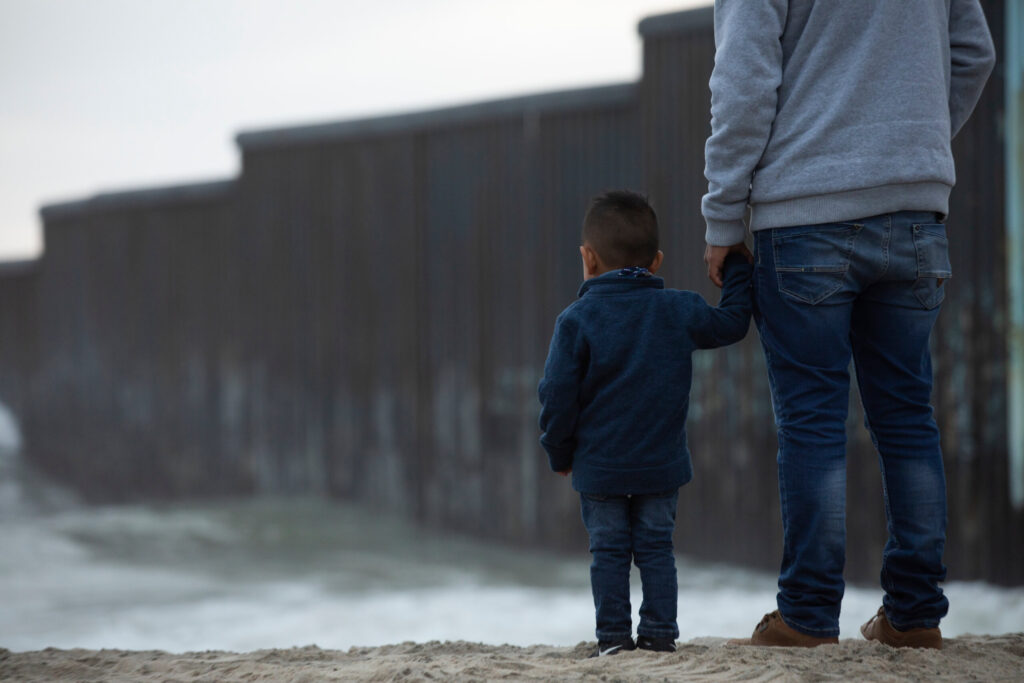(UnidosUS) —
President-elect Donald Trump has promised mass deportations, purportedly to reduce crime, expand job opportunities for U.S. workers and to otherwise improve the economy. However, a series of recent enforcement actions in Kern County, in California’s Central Valley, offer a troubling glimpse into what’s to come: widespread civil rights violations, harm to U.S. citizens and damage to our economy. Among those whose lives have been upended is a construction worker who has been in the U.S. for more than a decade and the parents of U.S. citizens.
It’s no secret that some Department of Homeland Security staff welcomed Trump’s election and are eager to curry favor with the incoming administration. News reports reveal that immigration enforcement actions have sown chaos in communities throughout Kern County. According to multiple news reports, U.S. Customs and Border Protection stated it was conducting a “targeted operation” aimed at dismantling transnational criminal organizations. However, witnesses report that Border Patrol officers and agents dressed in plain clothes, approached gas station customers, questioned their immigration status and arrested multiple people. In an apparently clear case of racial profiling, a gas station attendant stated, “It was only Hispanics and field workers that they were putting aside.”
The United Farm Workers Union states that its members were among those detained while traveling home from work. In addition to concerns about racial profiling, there are also questions if the stops of certain cars and workers meet the legal standard for reasonable suspicion required for such stops without a warrant. The owner of the gas station, a lawful permanent resident, expressed concern about the future of his business, a popular gathering spot for farmworkers who come in for food before and after working in the fields. “99% are farmworkers — they are my regular customers, my regular bread-and-butter,” he said.
Keep up with the latest from UnidosUS
Sign up for the weekly UnidosUS Action Network newsletter delivered every Thursday.
UnidosUS is alarmed that this is just a prelude of what’s to come under President-elect Donald Trump.
Other workers detained by Border Patrol agents were workers that were classified as “essential workers” at the start of the COVID-19 pandemic, who kept working and risking their health and lives so that food could be harvested while most Americans sheltered at home. Thus, according to the Trump administration, while these workers previously were previously considered essential, they are now deportable.
Community leaders and growers in Kern County warn that these actions will wreak havoc on the region’s agricultural and processing industries, where a quarter of the nation’s food is grown. According to news reports, growers have reported that fear of arrest has already caused workers to stay home. This could ripple across farms, dairies and food processing plants. As one article stated, “Grape vines and trees will lose their crop if they aren’t pruned in time. Cows could die if workers don’t show up to milk them. It does have effects on the food chain, without any question.” The Kern County Farm Bureau President issued a statement emphasizing that “the success of our local agriculture industry depends on a stable and reliable workforce. At a time when many local farms are already facing labor shortages, disruptions like these adversely affect local agricultural production.” The Border Patrol raids expose how critical immigrant labor is to the agricultural sector, and the risks mass deportations pose to the food supply and broader economy.
The impact of the raids on the agricultural sector should serve as a cautionary tale for elected officials throughout the country. A former president of the Kern County Farm Bureau described that many of his workers went into hiding after seeing reports of the arrests online, leading to fewer workers showing up to pick lemons, mandarins and oranges. “We just didn’t get our harvest in the volume we expect[ed],” said a local citrus grower. Typically, harvest crews place the citrus fruit in bins, that are hauled to a packing shed. From there, they are shipped to a distribution point in Southern California, where the fruit is packaged for retail and shipped to grocery stores such as Kroger’s and Trader Joe’s.
The rising cost of food was a clear concern for voters in November, and it’s clear that this is not the solution they want.
Better alternatives exist. We applaud Rep. David Valadao (R-CA-22) for his statement: “We urgently need common-sense immigration reform that creates a pathway to earned legal status for hardworking individuals contributing to our economy and removes those who threaten the safety of our communities.”
We urge elected officials to learn this lesson and collaborate with Congressman Valadao on a bipartisan basis to pass legislation that creates a pathway to legal status for undocumented immigrants who are integral to our communities and our country’s economic future.
—
Read More News from UnidosUS
